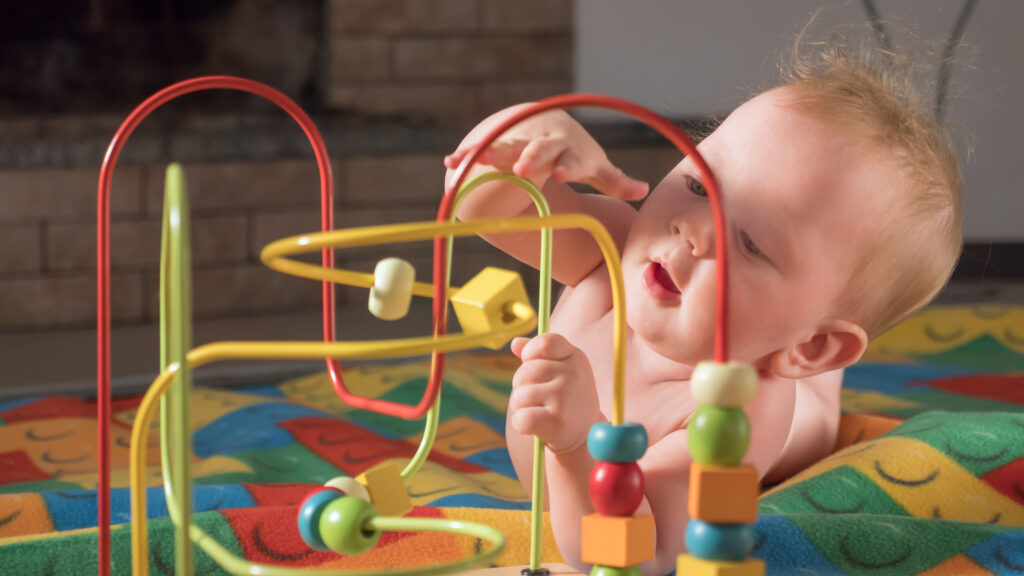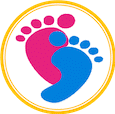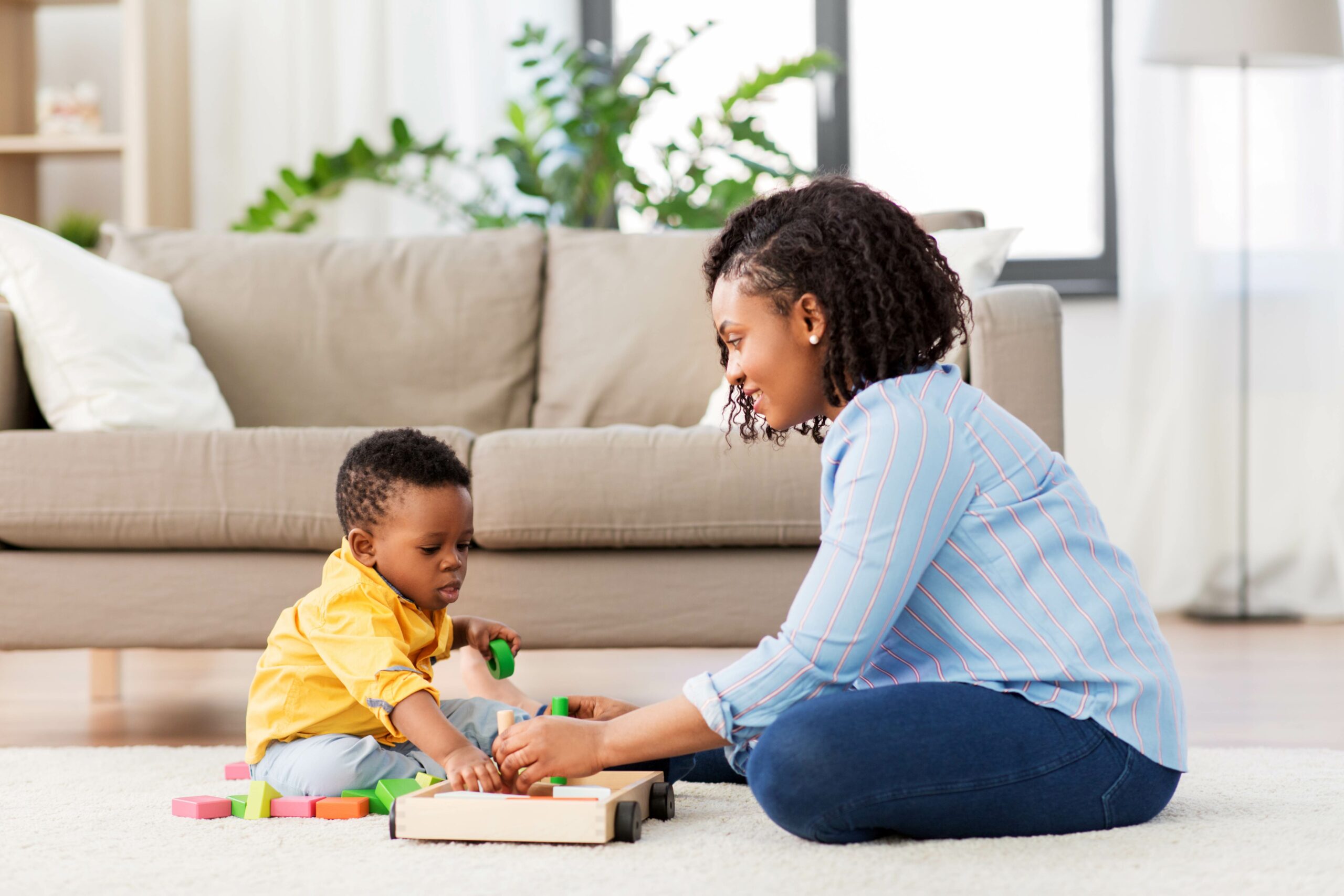
Step By Step: Guiding Your Toddler’s Motor Skill Development Journey
The first few years of a child’s life are a remarkable period of rapid development, with each milestone marking a significant step towards independence and exploration. As a mom, it can be one of the most rewarding times, but also one of the most worrisome times as well!
Among these many crucial milestones are the development of motor skills, which includes gross motor skills and fine motor skills.
This post is your comprehensive guide, packed with the knowledge and practical steps you need to confidently support your child’s motor skill development. Keep reading to discover engaging activities, expert tips, and valuable resources to guide your toddler’s motor skill development.
Understanding Motor Skills
Motor skills help toddlers move their bodies. These skills involve the muscles, nerves, and brain working together, allowing them to pick up toys or play simple tunes on a small instrument. The first few years are very important for young children to develop their ability to move and interact with the world around them.
Parents play a key role in helping their children learn these skills. If you’re a new parent looking for support, institutions like loloschildcare.com offer valuable guidance and activities for toddlers’ growth and development.
There are two main types of motor skills:
1. Gross Motor Skills
It involves large muscle groups in the arms, legs, torso, and head. Gross motor skills enable fundamental movements crucial for daily life and exploration, such as:
Locomotion – Walking, running, jumping, skipping, hopping, crawling, and climbing.
Object Manipulation – Carrying, throwing, catching, kicking.
Balance and Coordination – Maintaining posture, standing on one foot, riding a tricycle.
2. Fine Motor Skills
Involve the coordinated use of smaller muscle groups, particularly in the hands, wrists, and fingers. It enables precise movements essential for:
Grasping and Manipulating Objects – Picking up small objects, using utensils, buttoning clothes.
Writing and Drawing – Holding a pencil, forming letters and shapes.
Manipulation of Tools – Using scissors, turning doorknobs.

Motor Skills Development Journey
From crawling to climbing, discover your child’s exciting steps in motor skill development.
Step 1: Birth to 6 Months
Babies lay the foundation for future motor skill development during the first six months of life. Many movements during this period are reflexive, such as grasping and sucking. Regular tummy time sessions help strengthen the neck, shoulder, and core muscles, vital for future skills like crawling and sitting.
Introducing toys and textures during this stage stimulates sensory exploration and hand-eye coordination. Simple activities, like reaching for toys, encourage motor skill development and lay the groundwork for future milestones.
Step 2: 6 to 12 Months
Between 6 and 12 months, babies achieve significant milestones in their motor skill development. They may begin to roll over, sit unsupported, and even crawl. Providing a safe and stimulating environment encourages exploration and development. Placing toys out of reach encourages reaching and grasping, fostering hand-eye coordination.
As babies become more mobile, safety precautions become essential. Baby-proofing the home and supervising exploration ensure a safe environment for motor skill development. Engaging in interactive play activities supports further development and strengthens parent-child bonds.
Step 3: 12 to 18 Months
By their first birthday, toddlers are often on the move, exploring their surroundings with newfound independence. Activities like climbing, walking, and running develop gross motor skills and coordination. Outdoor play offers opportunities for exploration and social interaction, further enhancing development.
Fine motor skills continue to evolve during this stage. Activities like stacking blocks, sorting shapes, and scribbling with crayons refine hand-eye coordination and dexterity. Encouraging independence in daily tasks, such as self-feeding and dressing, fosters confidence and skill development.
Step 4: 18 to 24 Months
As toddlers approach their second birthday, they refine and master their motor skills. They may become proficient at climbing stairs, kicking a ball, and using utensils. Encouraging pretend play and interactive activities fosters creativity and fine motor development.
Engaging toddlers in simple household tasks promotes independence and practical skill development. Sorting laundry, watering plants, and putting away toys involve fine and gross motor skills. Encouraging autonomy in these activities builds confidence and self-esteem.
The Importance of Motor Skills for Toddlers
Here’s why motor skills matter:
1. Daily Tasks – Motor skills are needed for everyday stuff like getting dressed, eating, and playing with toys. Toddlers need these skills to do things independently and become more independent.
2. Staying Healthy – Developing motor skills helps keep toddlers healthy and robust. It builds up their muscles and improves their balance and ability to move around without falling over.
3. Learning Stuff – Believe it or not, using their bodies helps toddlers learn new things. When they crawl, walk, and play, their brains grow and develop, making them brighter little cookies!
4. Making Friends – Moving around and playing with other kids is a big part of making friends. Motor skills help toddlers join in games and activities with their buddies, making playtime even more fun.
5. Feeling Good – Toddlers who learn new motor skills, like stacking blocks or climbing, feel fantastic! It boosts their confidence and makes them proud of what they can do.
6. Academic Success – Good motor skills are linked to better academic performance. They help toddlers prepare for school by sitting still, holding a pencil, and writing, which is essential for academic success.
Helping your little one develop these skills prepares them for a happy, healthy, and successful future. Keep encouraging them to move, play, and explore—they’ll thank you for it later!

Tips for Toddlers to Improve Their Motor Skills
Toddlers are busy little explorers, and they’re always on the move! Here are some simple tips to help them hone their motor skills through moving and doing things with their bodies:
Encourage Plenty of Playtime
Let your toddler have lots of time to play and explore. Outdoor play offers toddlers many opportunities to practice their motor skills. Take them to the park to climb on the playground equipment, kick a ball, or run and jump in wide-open spaces.
Provide a Variety of Toys
Give your toddler a range of toys that encourage different kinds of movement. Balls for kicking, blocks for stacking, and crayons for scribbling are all great options that help develop different motor skills.
Create Safe Spaces to Explore
Ensure your home is safe for your toddler to move around and explore. Remove any hazards or dangerous objects, and consider adding soft mats or cushions to cushion falls.
Offer Supportive Guidance
Encourage your toddler to try new things, but be there to offer support and guidance if they need it. Hold their hand as they practice walking, or show them how to hold a crayon when they’re learning to draw.
Practice Balancing Activities
Balancing is an important skill for toddlers to master. To help them improve their balance and coordination, set up simple balancing activities, like walking along a line on the floor or stepping over obstacles.
Try Messy Play
Messy play activities, like finger painting or playing with playdough, are fun and great for developing fine motor skills. Let your toddler explore different textures and sensations with their hands.
Incorporate Sensory Play
Sensory play activities can strengthen toddlers’ motor skills while they explore different textures and materials. For example, they can play with sand, water, or special bins filled with various items. Through sensory play, children are encouraged to explore using their hands and fingers.
Be Patient and Positive
Learning new skills takes time. Toddlers might get frustrated or discouraged. It would help to be patient and give them praise and encouragement to keep them motivated.
Incorporating these tips into your toddler’s daily routine will help them develop their motor skills and set them on the path to becoming confident and capable little movers!
Challenges in Supporting Toddlers in Honing Their Motor Skill
Here are some challenges parents may face in supporting toddlers in honing their motor skills:
1. Frustration and Impatience – Toddlers may become frustrated when they can’t master a new skill quickly. Their impatience can sometimes lead to resistance or tantrums during practice sessions.
2. Safety Concerns – Parents must create a safe environment for toddlers to explore and practice motor skills. However, ensuring safety while providing growth opportunities can be challenging, especially as toddlers become more adventurous.
3. Limited Attention Span – Toddlers have short attention spans, making it challenging to keep them engaged in activities that promote motor skill development. Parents may need to find creative ways to maintain their child’s interests.
4. Resistance to Guidance – Some toddlers may resist parental guidance or assistance when learning new skills. They may prefer to explore independently, making it challenging for parents to provide support effectively.
5. Individual Differences – Every child develops at their own pace and may have unique strengths and challenges. Understanding and accommodating these differences can be challenging for parents, especially if they have multiple children with varying abilities.
6. Balancing Screen Time – Excessive screen time can interfere with toddlers’ physical activity and motor skill development. However, limiting screen time while encouraging other forms of play and exploration can be challenging in today’s digital age.
7. Overprotectiveness – Parents may struggle to balance allowing their toddlers to explore and keeping them safe. Being overly protective can hinder a child’s ability to develop confidence and independence in their motor skills.
8. External Pressures – Parents may feel pressure from societal expectations or comparisons with other children. This pressure can lead to inadequacy or anxiety about their child’s development and progress in honing motor skills.
9. Finding Time for Activities – Busy schedules and competing demands can make it challenging for parents to find activities that promote motor skill development. Finding time for regular play and exploration may require prioritization and planning.
10. Identifying Developmental Delays – Parents can find it challenging to recognize potential developmental delays in motor skills, especially if they lack knowledge or experience. Seeking guidance from healthcare professionals may be necessary to address concerns and provide appropriate support.

Motor Skill Developmental Delays
Here are some potential developmental delays that may arise when motor skills are not adequately developed in toddlers:
1. Physical Development Delays
Delayed motor skill development can lead to delays in physical milestones such as sitting, crawling, standing, and walking. Children may struggle to achieve these milestones within the typical age range, impacting their overall physical development.
2. Fine Motor Skill Delays
Poor development of fine motor skills can affect a child’s ability to perform tasks that require precise hand-eye coordination, such as grasping objects, using utensils, and writing. This may impact their independence in daily activities and academic readiness.
3. Gross Motor Skill Delays
Difficulty developing gross motor skills can impair a child’s ability to perform essential movements such as walking, running, jumping, and climbing. This can affect their participation in physical activities and may lead to challenges in social interactions with peers.
4. Speech and Language Delays
Motor skills, particularly oral motor coordination, are crucial in speech and language development. Delays in motor skill acquisition may contribute to delays in speech production, articulation, and language comprehension.
5. Cognitive Development Delays
Motor skills are commonly associated with cognitive development, involving coordination between the brain and muscles. Delayed motor skill development may hinder a child’s ability to explore their environment, manipulate objects, and engage in problem-solving tasks, impacting overall cognitive development.
6. Overall Developmental Delay
In severe cases, persistent delays in motor skill development may indicate a broader developmental delay, like autism spectrum disorder (ASD) or developmental coordination disorder
(DCD). Once identified, early intervention is crucial in addressing underlying issues and promoting optimal development.
7. Social and Emotional Delays
Difficulties in motor skill development can affect a child’s self-confidence and self-esteem, especially in social settings involving physical activities. Children may feel frustrated or excluded if they cannot keep up with their peers, leading to social and emotional challenges.
8. Academic Performance
Fine motor skills are foundational for academic success. They are involved in writing, drawing, and manipulating small objects. Delayed development in these areas may impact a child’s ability to participate fully in classroom activities and achieve academic milestones.
9. Behavioral Challenges
Frustration from motor skill delays can manifest in behavioral challenges such as tantrums, defiance, or withdrawal. Children may struggle to communicate their needs effectively or engage in activities that require motor coordination, leading to behavioral issues.
10. Sensory Processing Difficulties
Motor skill delays can co-occur with sensory processing difficulties, affecting how a child processes and responds to sensory information from their environment. Delays in sensory affection may impact the child’s ability to regulate emotions, maintain attention, and engage in daily activities effectively.
Conclusion
Nurturing your toddler’s motor skill development is not just fostering physical abilities but laying the foundation for their overall growth and success. By understanding the importance of motor skills, navigating the developmental journey step by step, and addressing potential challenges, you can empower your child to thrive. You’re shaping their path toward a bright and promising future with patience, encouragement, and a supportive environment.
Author Bio
As a dedicated parent and advocate for child development, Sandra Widelka is passionate about providing practical guidance to empower parents in nurturing their children’s growth. With a background in early childhood education, they strive to support families in creating enriching environments where children can flourish and thrive.
Welcome to my blog! I am an activity mom of three and I have over 15 years of experience crafting, writing, designing and creating. My mission is to bring fun, balance and learning to your busy homes with activities, tips, inspiration, and organization!






